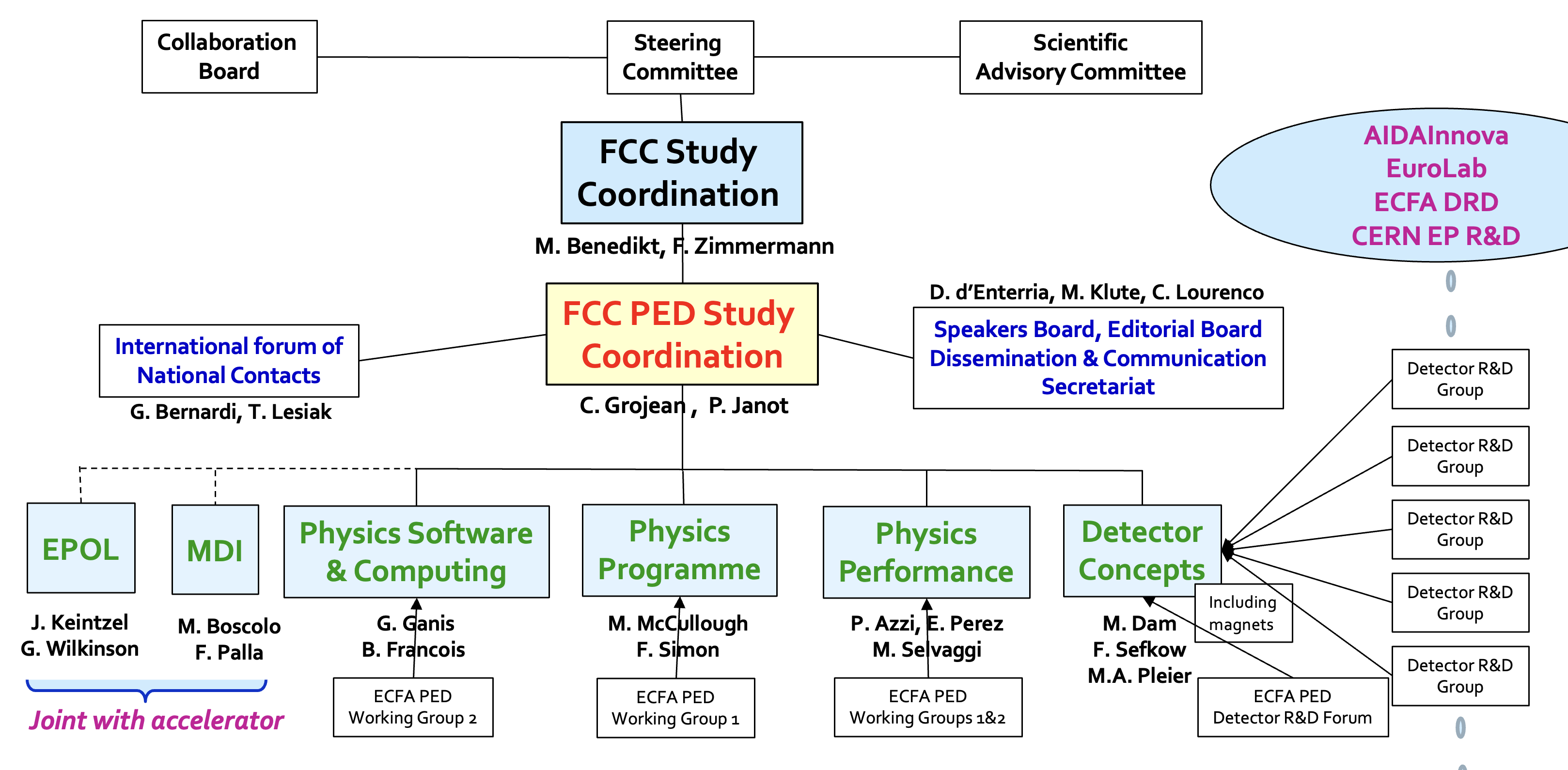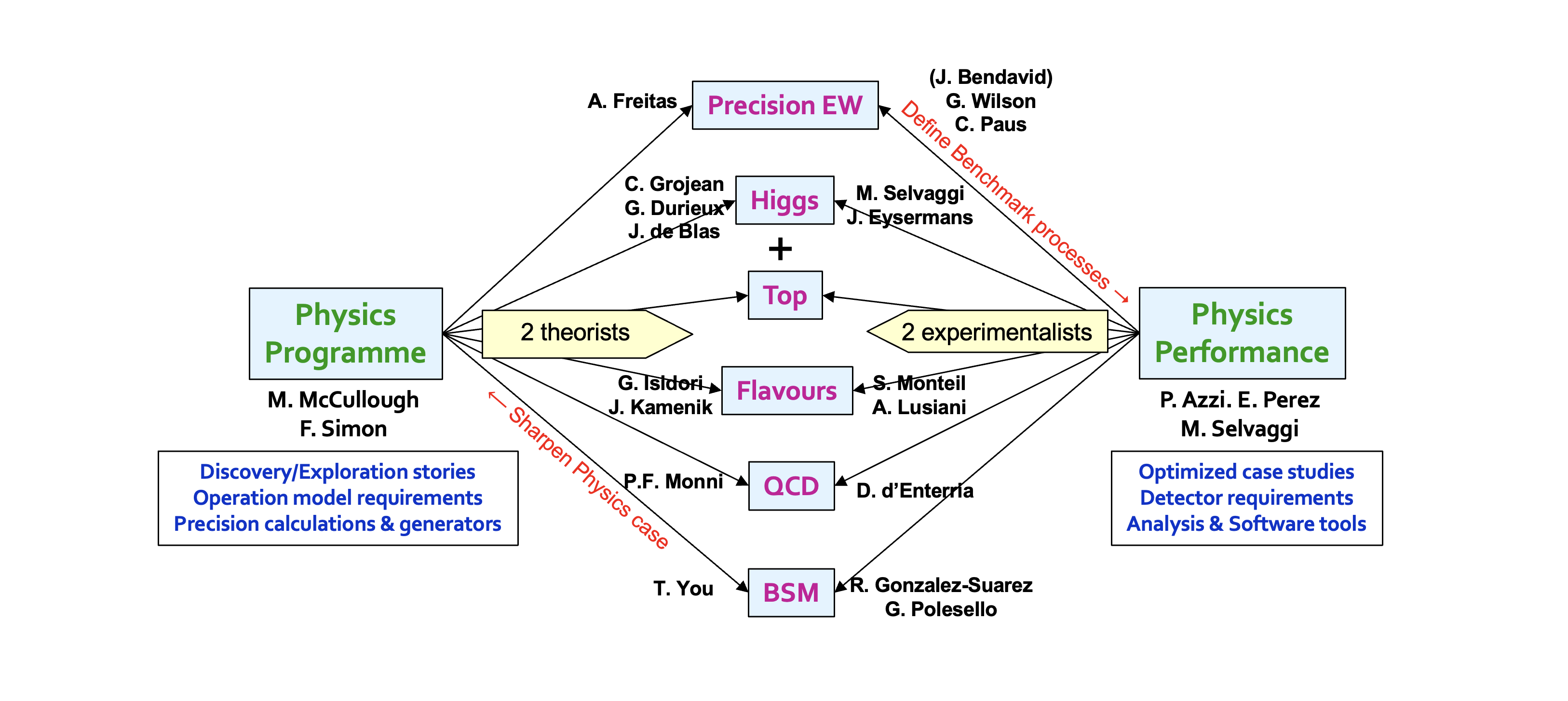THIS PAGE IS A DRAFT
The Physics, Experiments and Detectors pillar of the FCC Feasibility Study has several goals:
- Consolidate the physics case for the integrated FCC programme
- Consider and benchmark FCC-ee detector concepts to meet the requirements of ultra-precise Higgs boson and electroweak measurements
- Revisit FCC-hh detector concepts in light of the evolution of the physics landscape and the experience gained with the High-Luminosity LHC detector upgrades
- Evaluate the cost drivers for construction and operation of the detectors and formulate the requirements on accelerator performance, technical infrastructure, integration and civil engineering
- Establish the requirements on theoretical calculations and Monte Carlo generators in order to fully exploit the physics programme
Work will proceed in collaboration with related ECFA activities and with the R&D for future detectors initiative at CERN.
The PED pillar is coordinated by Patrick Janot and Christophe Grojean and has the following work packages:
- Physics Programme, led by Matthew McCullough and Frank Simon
- Physics Performance, led by Patrizia Azzi, Emmanuel Perez, and Michele Selvaggi
- Detector Concepts, led by Mogens Dam, Marc-André Pleier, and Felix Sefkow
- Physics Software & Computing, led by Gerardo Ganis and Brieuc François
- Machine-Detector Interface (join with Accelerators work package), led by Manuela Boscolo and Fabrizio Palla
- EPOL (joint with Accelerators work package), led by Guy Wilkinson and Jacqueline Keintzel

Figure 1: PED Pillar Organisation Chart
The physics programme and physics performance work packages also contain physics groups, organised as follows:

To sign up for news about activities [link to be completed]
